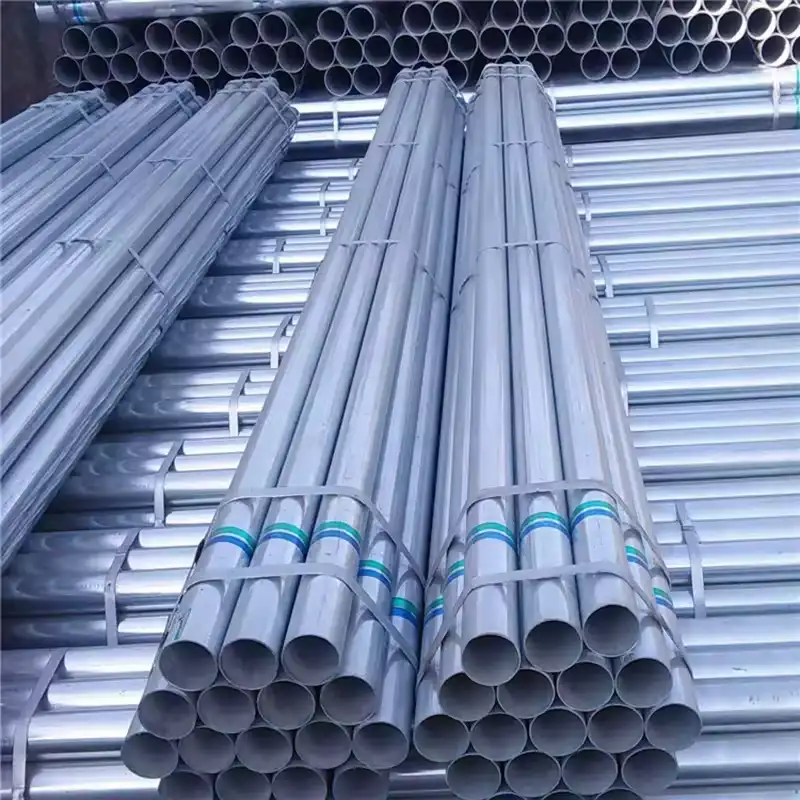The wall thickness of a 2-inch galvanized pipe outside diameter (OD) can significantly affect its performance in various ways.
Here’s how the wall thickness influences the performance of a galvanized pipe:
- Strength and Structural Integrity: The wall thickness of a galvanized pipe directly affects its strength and structural integrity. Thicker walls generally provide greater resistance to bending, buckling, and deformation under load. As a result, galvanized pipes with thicker walls are better suited for applications requiring high strength and structural support, such as structural columns, beams, and scaffolding.
- Pressure Rating: The wall thickness of a galvanized pipe determines its pressure rating or the maximum pressure it can withstand without failure. Thicker walls can withstand higher internal pressures compared to thinner walls. Therefore, galvanized pipes with thicker walls are suitable for applications requiring high-pressure fluid conveyance, such as water supply lines, hydraulic systems, and pneumatic systems.
- Corrosion Resistance: The wall thickness of a galvanized pipe can indirectly affect its corrosion resistance. Thicker walls provide greater protection against corrosion by providing a thicker barrier of zinc coating. Additionally, thicker walls may offer better resistance to mechanical damage or abrasion, which can compromise the integrity of the zinc coating and expose the underlying steel to corrosion.
- Durability and Longevity: Galvanized pipes with thicker walls tend to have greater durability and longevity compared to pipes with thinner walls. 2 Inch Galvanized Pipe Outside Diameter Thicker walls offer better resistance to wear, abrasion, and environmental factors, such as moisture, chemicals, and UV radiation. As a result, galvanized pipes with thicker walls are less susceptible to corrosion, degradation, and premature failure, leading to longer service life and reduced maintenance requirements.
- Cost and Weight: Thicker-walled galvanized pipes generally cost more and weigh more compared to pipes with thinner walls. The increased material and manufacturing costs associated with thicker walls may impact the overall project budget. Additionally, the added weight of thicker-walled pipes may require additional support or reinforcement in some applications, increasing installation complexity and cost.
In summary, the wall thickness of a 2-inch galvanized pipe outside diameter plays a crucial role in determining its performance characteristics, including strength, pressure rating, corrosion resistance, durability, and cost. Engineers and designers must carefully consider the specific requirements of the application when selecting the appropriate wall thickness for galvanized pipe installations. Factors such as operating conditions, loads, pressures, and environmental factors should be taken into account to ensure optimal performance and longevity.
